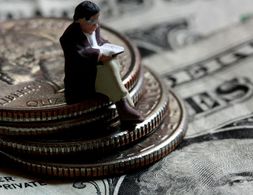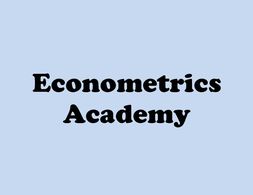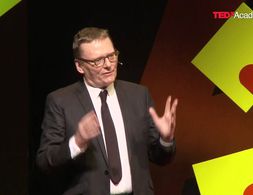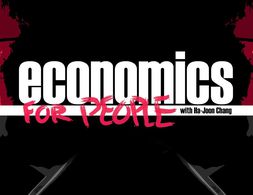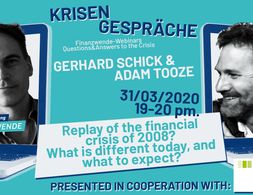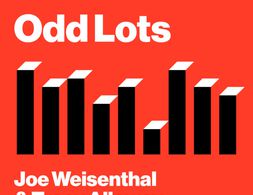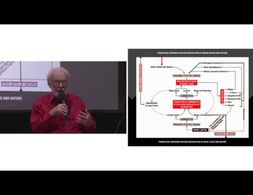✕
1136 results
The article is a formal response to the debate between the economists Diane Coyle and Howard Reed, whose articles were published online by Prospect magazine in 2018. Then, it was taken by Rethinking Economics as representative for the vision of the global network which advocates for changing economics curricula. In fact, it clearly solves some issues within the debate around pluralism by explaining its common misunderstandings among academics and its true - often mislead - meaning.
Since Daniel Kahneman won the Nobel Memorial Price in Economic Sciences in 2002, a new branch of economics gained academic and popular interest. That is, the so-called area of behavioural economics. However, some scholars claim that this new area of economics is not changing much of the mainstream paradigm. Why?
In this blog article Steve Keen elaborates on flawed climate change modelling and mainstream economics forecasts. In specific, he stresses the climate change forecasts of the DICE model (“Dynamic Integrated model of Climate and the Economy”) by Nobel Memorial Prize in Economic Sciences winner William Nordhaus.
In this post, Rethinking Economics sets out what it means to decolonise economics education and how we can do that. The article first breaks decolonising down into a "mind-set" and a "process", then applies this process to economics education. It finishes with a reading list and some suggested actions to get you started decolonising economics today.
What’s inflation? Why is it relevant? And is there an agreed theory about its roots and causes, or is it a contentious concept? That’s what this text is all about: We define what inflation actually means before we delve into the theoretical debate with an interdisciplinary and pluralist approach: What gives rise to it, what factors might influence it, and, consequently, what might be done about it?
After completing the module, participants should be able to have general overview on the theory of commons. They can differentiate between neoclassical, new institutional and social/critical commons theory and can use these theories to assess real life common-pool resource management and commoning pratices.
Tejashree Dewoolkar Sujatha Padmanabhan Ashik Krishnan Extraordinary work of ordinary people Vikalp sangam
The author discusses the various dimensions of the recent hike in inflation in the context of the United States and policy dilemmas around high inflation GDP decline and unemployment Servaas Storm Institute for New Economic Thinking
This Blog Post describes the U.S. federal reserve money system from the perspective of the Modern Monetary Theory (MMT). Therefore it presents a theory of money creation, gives simple examples how this influences the economy and the historical process of why the monetary system of the US has developed this way.
The authors discuss how identity affects economic outcomes by bringing together psychological and sociological perspectives and economics. For economic outcomes of a single individual, it might be interesting which kind of social groups this individual belongs to. This may influence individual daily decisions and hence economic outcomes. It can, however, not only affect individual economic outcomes but also economic outcomes of organizations, institutions and other groups. This paper describes these influences with respect to gender in the workplace, to the economics of poverty and social exclusion, and to the household division of labour.
Quinn Slobodian a historian of modern Germany and international history analysis of current development in the Mont Pèlerin Society and therefore neo-liberalism. He sees neo-liberalist thinkers less as believers in the self-healing power of markets, but more as ordo-liberal Globalists who wanted to protect the markets from post-war politics and especially mass democracy. Their goal of global capitalism is still strong, however sceptics in the Mont Pèlerin Society are rising, which see international migration as a threat to Globalisation. Therefore, turning neo-liberal policies away from international institutions like the EU back towards the national states as new defenders of the markets as well as international trade and investments.
(A development which can be seen in the Friedrich A. von Hayek-Gesellschaft and especially in the "liberal" wing of the German rightwing populist party AfD)
In this famous article Michal Kalecki describes the three main reasons that push business leaders to reject the intervention of the government to ensure full employment i dislike of government interference in the problem of employment as such ii dislike of the direction of government spending public investment and subsidizsing …
‘We cannot afford their peace & We cannot bear their wars’:
Value, Exploitation, Profitability Crises & ‘Rectification’
This syllabus provides an overview of the contents of the course "Understanding Economic Models" at the University of Helsinki.
How can we shape urban development towards sustainable and prosperous futures This course will explore sustainable cities as engines for greening the economy We place cities in the context of sustainable urban transformation and climate change Sustainable urban transformation refers to structural transformation processes multi dimensional and radical change that …
There are three things one can do in this website - 1. Learn 2. Help Teach 3. Sign up MOOC. This is a semester-long graduate course in Econometrics. This course is intended for graduate students in economics-related fields and more generally in social sciences. The course includes an overview of the models and theory and applications using Stata, R, or SAS
programs. This econometrics class covers about 15 of the most commonly used econometric models in economics, such as linear regression, panel data models, probit and logit models, limited dependent variable models, count data models, time series models, and many more.
James Robinson gives in this talk a short introduction into the theory and ideas of his popular book "Why Nations Fail" which was published together with D. Acemoglu in 2012. With many real-life examples he gives a lively description on the fundamentals for economic success from an institutionalist view. According to Robinson, the nature of institutions is a crucial factor for economic success. Whether institutions are inclusive (such as in prosperous economies) or extractive (poor economies) stems from the nation's political process and the distribution of political power.
Economics has long been the domain of the ivory tower, where specialized language and opaque theorems make it inaccessible to most people. That’s a problem.
In her short contribution, the author questions how the value of goods and services is shaped in current neoclassical teaching. She criticizes the principle of pricing based on marginal income. She discusses what can be called wealth generating, what kind of wealth we need and points out a lack of a value theory.
Learn the basics of microeconomics including supply and demand of commodities and how equilibrium in the market affects price Joon Koo Lee edX Seoul National University
Ever wondered why some countries are rich and others poor Or why some people believe hard work results in upward mobility and others don t To answer these questions you need to see the world sociologically In this introductory sociology course we will explore the concerns of an interconnected global …
"Learn why cities are key in resolving global urbanization and sustainability challenges and how you can engineer tomorrow’s cities today."
To prevent the coronavirus shock to demand precipitating a long-lasting depression, government needs to become short-term payer of last resort.
For some days, global financial markets are in turmoil. Central banks and governments are dealing with the unfolding crisis on a daily basis with seemingly u...
The plumbing of the financial system is coming under strain like never before. On this week’s podcast, we speak with two legendary experts on how the money system works: Zoltan Pozsar of Credit Suisse and Perry Mehrling of the Frederick S. Pardee School of Global Studies. They explain the extreme level of stress we’re seeing, what the Fed has done to alleviate, what more needs to be done, and what the post-crisis future may look like.
John Christensen from the Tax Justice Network addresses the Modern Monetary Theory idea that governments don't need tax revenues if they want to spend money. Doing so, he sums up the main points made by MMT proponents and their critics, and shows how MMT can be reconciled with another progressive economic narrative: "Modern Tax Theory". While MMT made valuable contributions to the policy debate on fiscal policy, it misrepresents the importance of taxation as a political matter and as a way to generate public revenues. This is where MMT steps in.
"his course introduces the complex, but critical, concepts of sustainability and resilience and examines your impact on our environment."
This course is an introduction to the economic theories of financial crises It focuses on amplification mechanisms that exacerbate crises such as leverage fire sales bank runs interconnections and complexity It also analyzes the different perspectives on the origins of crises such as mistaken beliefs and moral hazard and discusses …
This course provides an overview of the fundamentals of the economic Methodology.
Banner and Pastor debunk granted assumptions of the neoclassical theory, such as self-interested human behavior, the necessity of inequality and growth, to pull the threads between the new possible foundations of our society, "prosperity, security and community".
Marxist scholar David Harvey explains key concepts of capital from Marx. Applying Marx's analysis of capital to today's world, showing both the longevity and relevance of Marx's Capital, 150 years after its publication.
This Forum in the Boston Review deals with the role of economics in modern policymaking and presents a wide set of perspectives on the topic. The opening text by Suresh Naidu, Dani Rodrik and Gabriel Zucman aims to answer a range of common criticisms against the modern, neoclassical science of economics and its influence on public discussions.
We use cookies on our website. Click on Accept to help us to make Exploring Economics constantly better!

